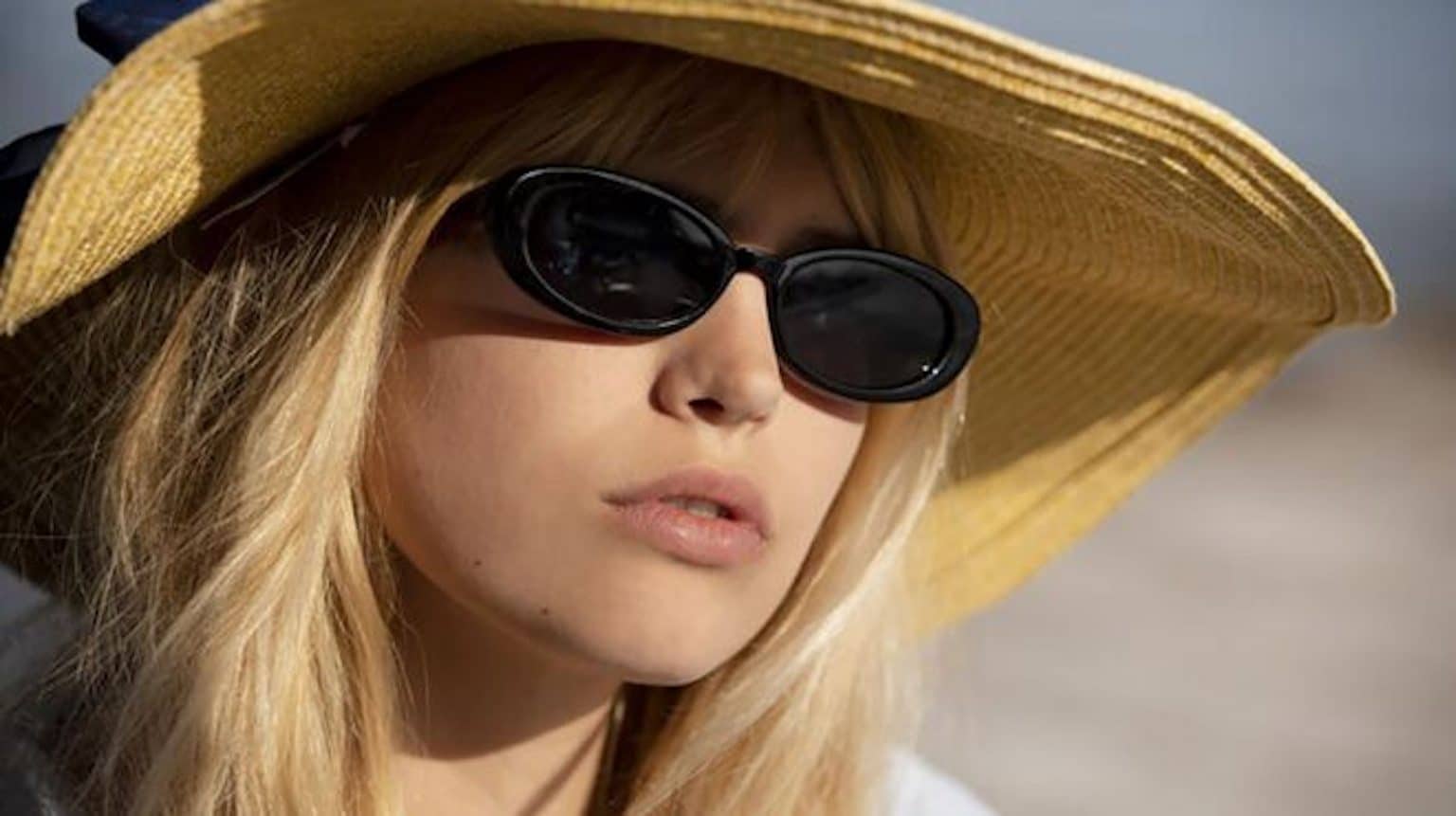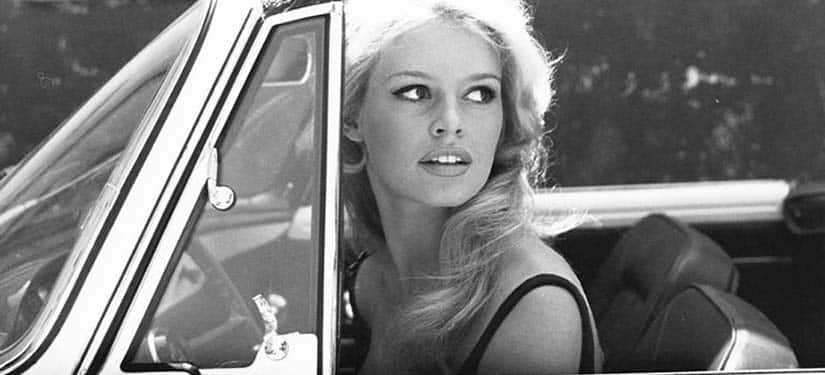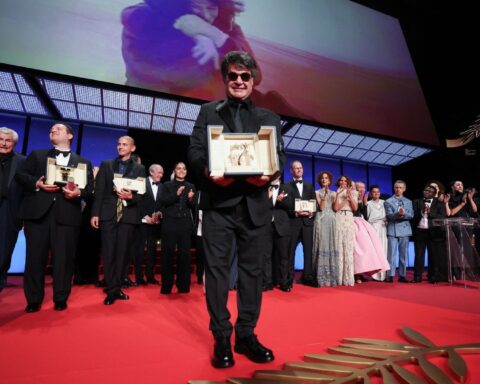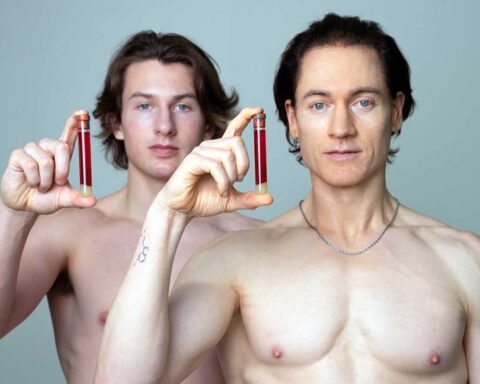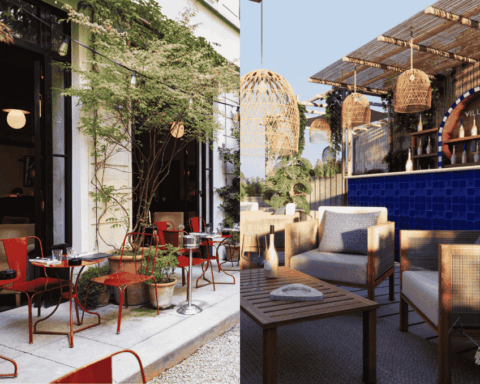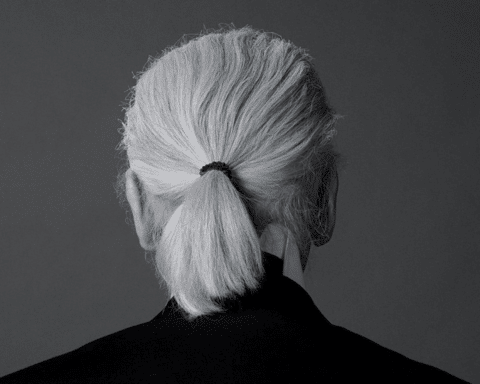With her fiery blond hair, her falsely ingenuous face, her tousled hair, her pout, and her fiery gaze, Julia de Nunez is Brigitte Bardot. Notice to all ex-fans of the sixties, BB, the actress of Le Mépris and very first French starlet, is the subject of a mini-series directed by Danièle and Christopher Thompson for France Télévision, on your screens since May 8.
And Bardot created the flame
The Americans had Elizabeth Taylor, and France had Brigitte Bardot. In other words, the international star or, rather the total icon. A nonchalant personality with a free spirit who, by her antics, has aroused both admiration and indignation.
In love with love, Brigitte Bardot indulged in polyamory long before it became popular with the current generation Z. Once again ahead of her time, she questioned motherhood during the stammering “Trentes Glorieuses” with a still-corseted mind. She does not hesitate to resort to abortion, a highly symbolic gesture for the period and even more so today when this right is being challenged in some twenty American states.
How did Brigitte become the BB myth, a phantasmagorical apparition of New Wave cinema, and a matrix figure of female emancipation?
This is what the new six-part Bardot series seeks to decipher, with Danièle and Christopher Thompson – mother and son – behind the camera.
This French-Italian co-production looks back at 1949-1960, a prolific period of cinematographic Bardot marking the star’s meteoric rise.
We follow chronologically a young girl of 15 dreaming of becoming a dancer, suffocating in a bourgeois family in the 16th arrondissement of Paris until her 26th birthday and her suicide attempt in her house in La Madrague in Saint-Tropez.
A Bardot who ceases to be Brigitte with the very transgressive – for the time – And God … created woman (1956). The film gives the actress access to the status of a sex symbol and prefigures the sexual revolution of 1968. This work also puts in the spotlight a small fishing port in the Var, until then popular with impressionists: Saint-Tropez.
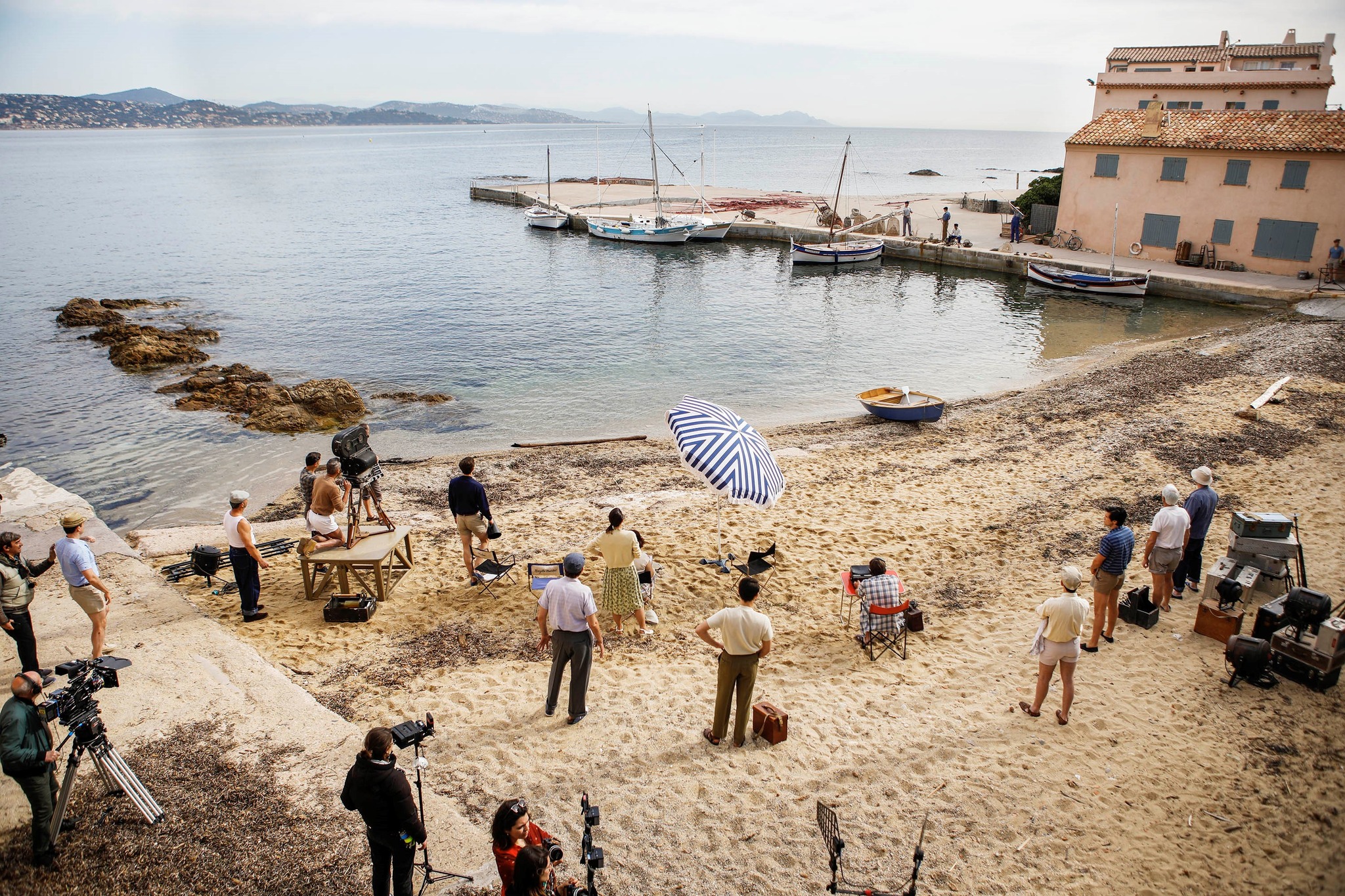
The series’ shooting took place on the beach of the Ponche, one of the mythical places of the film by Roger Vadim, who was one of the first to favor outdoor shots.
A sunny snapshot of the Parisian woman, she dares to wear a sailor suit and Repetto ballerinas. She is as comfortable with Jacques Esterel’s gingham dresses as with mini-shorts and thigh-high boots.
So many inspiring elements that justify its adaptation into a series.
A Brigitte more real than life
“It’s the story of a young girl who, like the others, is looking for love and success but whose dreams are shattered by the hysteria she unleashes.” This is how the co-director of this series on BB’s youth describes the project.
It took four years for Daniele Thompson and her son Christopher to write and think about this adaptation. Indeed, the co-writer of La Grande Vadrouille by Gérard Oury (1966) and La Boum by Claude Pinoteau (1980), as well as director of films such as La Bûche (1999) and Fauteuils d’orchestre (2005), hesitated for a long time to take on the project.
Because everything seemed to have already been said about the mythical actress, known in France as well as across the Atlantic, but this was without considering her (stolen) intimacy and her feeling of great solitude, which resonate with our era, both hyperconnected and isolated.
Then the very idea of filming the evolution of teenagers in youth culture in full construction ends up seducing the director, who sees it as material for a novel.
At age 81, Danièle Thompson has also lived through the experience of the female condition lived by Brigitte Bardot, 8 years her junior, during the very conservative 1950s.
Anxious to reproduce on screen the sincerity of this indomitable woman, Danièle Thompson conducted numerous interviews with witnesses of the time and the star’s close friends. She also read the biographies of those who shared part of BB’s life, namely her agent Olga Horstig, the producer Raoul Lévy and the director Roger Vadim.
A five-star cast then begins to take shape with the role of Brigitte Bardot’s parents, Geraldine Pailhas and Hippolyte Girardot.
The solar Victor Belmondo plays Roger Vadim, director and first love of Bardot, while the promising Noham Edje, all in restraint, plays Jean-Louis Trintignant. For his part, Yvan Attal plays Raoul Levy, the producer of “And God… created the woman”. Anne le Ny plays his agent, Olga Hostig.
Remains the element sine qua none to the success of such a project: who will play BB?

The choice ended up being Julia de Nunez. She is a 20-year-old actress, unknown to the general public, and just graduated from the private drama school Périmony.
A theater school that has seen, among others, Fanny Ardant, Sabine Azéma, Marlène Jobert, François Cluzet, and Camille Cottin.
The young actress was chosen as much for her uncanny physical resemblance – to the point that her friends gave her posters of the actress – as for the finesse of her interpretation. And in this regard, if the main interpreter manages to reproduce her pout, drawl, and accent so particular, she delivers a frank and unvarnished performance up to the challenge.
Fascinated by her performance in Henri-George Clouzot’s film La Vérité as much as lulled by her songs, the foremost interpreter of the series evokes the major inspiration that Brigitte Bardot had in the orientation of her acting career.
And of music, it is a question because Brigitte Bardot interpreted more than 70 titles written and composed by big names of the time, such as Jean-Max Rivière, Gerard Bourgeois, Jean Fredenucci, or of course, Serge Gainsbourg. The latter’s romance with the actress will inspire the symphonic Initials BB (1968), freely inspired by the symphony No. 9 by Antonín Dvořák or the disarming and languorous “Je t’aime… moi non plus”, which will finally be performed by Jane Birkin. The title is also the subject of a sequence in the film Gainsbourg Vie Héroïque by Joann Sfar (2010) with Laetitia Casta in the role of BB.
Arthur Simonini, who had signed the soundtrack of Portrait of a Girl on Fire, a film sensation in Cannes in 2019, offers a tribute to this dream world of double B, where we find both magnificence, candor, and rays of Saint Tropez.
The opening credits alone offer great music mixing a sculptural orchestration made of strings, piano, and xylophone with sixties reminiscences of rock Harley Davidson period. The rest brings back the great hours of the new wave, those of Jean-Luc Godard and Louis Malle, with variations of the main theme, either intimate and jazzy or film noir.
And BB chooses… to be out
The series chose to stop in 1960, the year of birth of her son Jacques-Nicolas Charrier, which clashes with the hysteria triggered a few years earlier by Roger Vadim’s film, And God… created woman. The actress was then only 22 years old.
A pivotal film in the history of Bardot that remains in the memories wrongly as the starting point of her career in cinema, even though she already has a dozen movies to her credit.
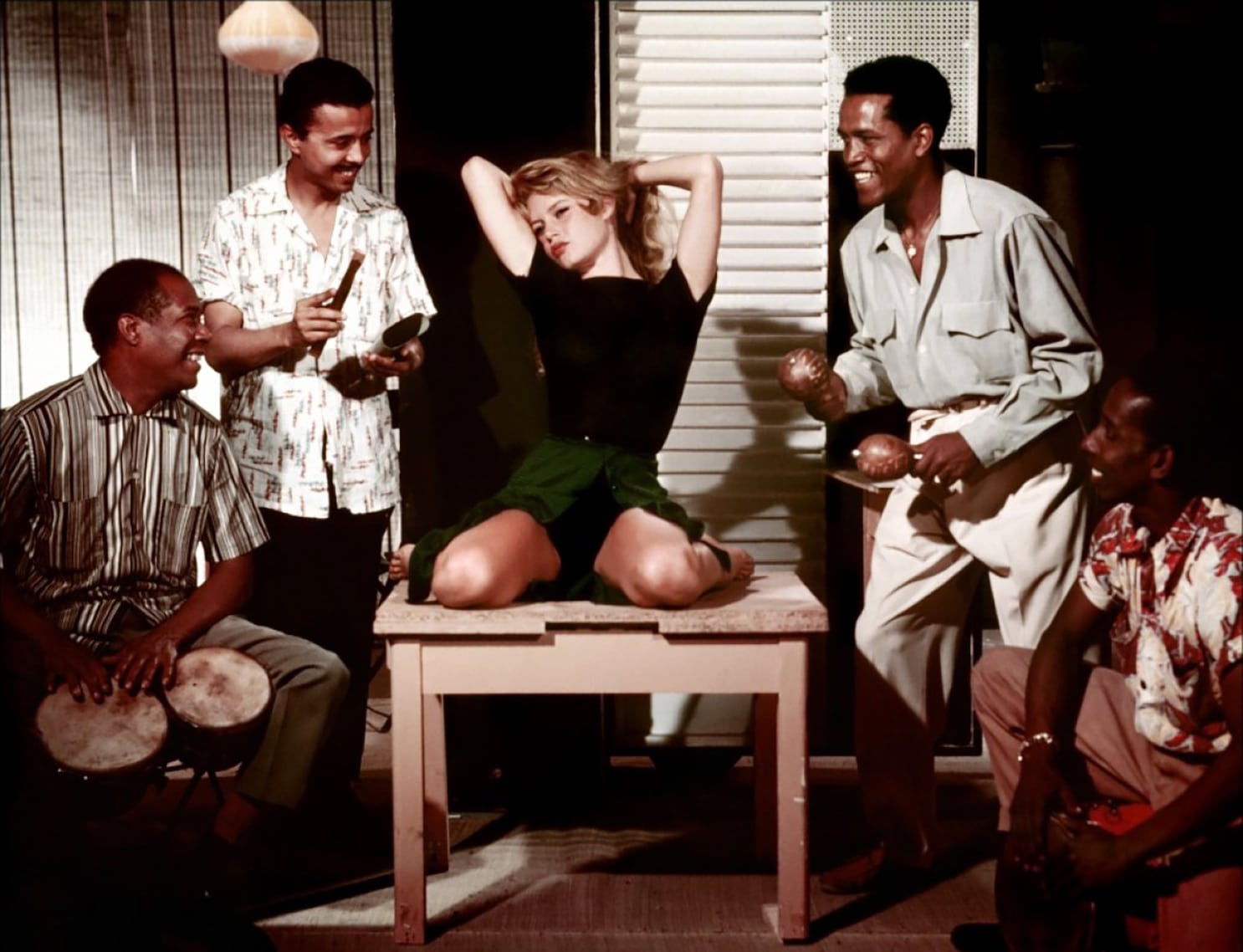
With the exposure of her lascivious body and her (too) free dance, the film is welcomed very coldly at its release in December 1956 in France by the spectators as well as by the critics. Playing Juliette, Brigitte Bardot turns hearts on the set as in the city of Roger Vadim and Jean-Louis Trintignant. It must be said that Vadim proposes something avant-garde: a female character who expresses her desires, her sexuality, and her freedom … as men.
It becomes a social phenomenon only after being adopted by the American market, which distributes it in several American cities – a first for a French film.
The philosopher Roland Barthes even devotes a few lines to this nascent “national soap opera” in his referential work Mythologies, published in 1957: “It represents a more open eroticism, stripped of all those falsely protective substitutes that were the semi-clothing, the blush, the fade, the allusion, the leak.”
This phenomenon forces the star to give birth and live cloistered on the 7th floor of 71 Avenue Paul-Doumer, in Paris. Thus, long before Lady Diana or Britney Spears, Brigitte Bardot had the painful experience of the star system. The word paparazzi (“noisy mosquito”), derived from the character Paparazzo, an unscrupulous photographer and ally of Marcello Mastroianni in another scandalous film – Federico Fellini’s La Dolce Vita (1960) – had just appeared.
The image of Bardot, shaped despite herself by Roger Vadim like Pygmalion and his Galatea – half childlike woman, half femme fatale – finally escaped Brigitte.
Stalked by photographers, from the Croisette to her home in La Madrague, threatened by women who see her as a rival who never stops “taking all their men,” the actress is at the end of her rope.
A report on baby seals finally convinced her to change her life at 43.
Thus, while she triumphed in the cinema, Brigitte withdrew from this “wonderful and abominable world” in 1973 to lead a committed life entirely turned towards the defense of the animal cause.

n 1977, she left with the Swiss ecologist Franz Weber on the ice floes to defend the baby seals, hunting for their fur. Despite the hostility of both trappers and Canadians, she took advantage of a moment of calm to go to a hunting area and take a baby seal in her arms. The picture taken by the photographer Miroslav Brozek did not take long to go around the world and create international excitement. BB then says goodbye to the cinema for good.
The main interested party should not watch this series on her own history. In the Journal du Dimanche last December, she said, “I do not care: the only thing that matters is my real life with me in it. And not some stupid biopics”.
However, she has given her agreement and approved the choice of the director.
Decidedly, this is perhaps the secret Brigitte Bardot: a frankness to any test!
Bardot
A series directed by Danièle and Christopher Thompson for France Télévision (2023)
With Julia de Nunez, Victor Belmondo, Hippolyte Girardot, Géraldine Pailhas, Yvan Attal, Anne le Ny, Noham Edje
Broadcast on France 2 since May 8 and in replay on the platform France.TV
Read also > THE THREE MUSKETEERS: A FRENCH BLOCKBUSTER FULL OF FLAIR




